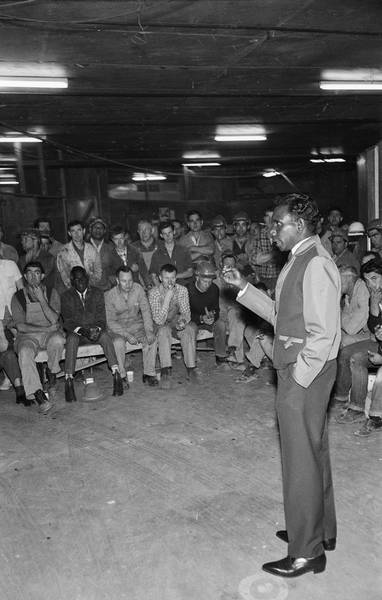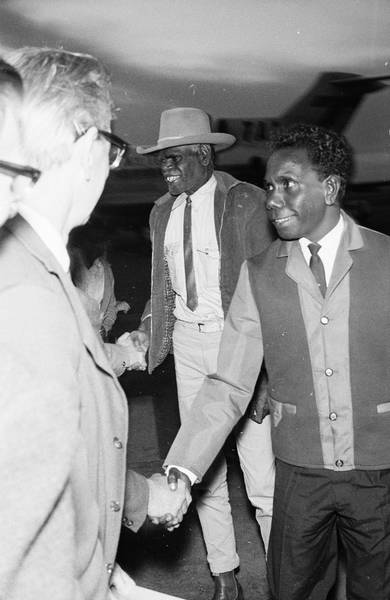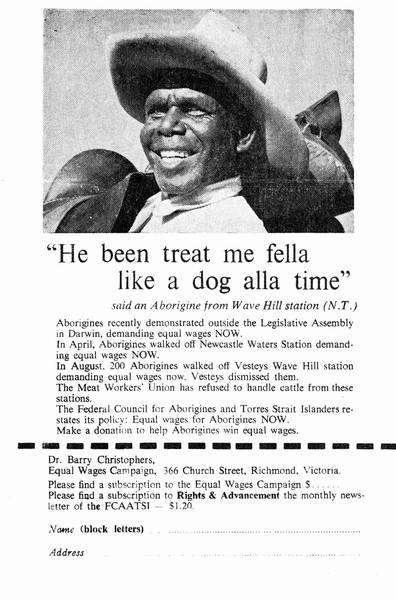Response
The news of the deferred implementation among Aboriginal pastoral communities in the Northern Territory seemed to be the last straw. In April Lupna Giari (also known as Captain Major), head Aboriginal stockman at Newcastle Waters pastoral station, led a walk-off of about 80 pastoral workers and their families. News of this strike spread and in August 1966 Vincent Lingiari, head stockman at Wave Hill, south of Darwin, one of the largest pastoral leases in the Territory, owned by the wealthy British Vestey family, also led 200 workers and their families in a walk-off. They set up camp at Dagaragu (Wattie Creek). The Federal Council for the Advancement of Aborigines and Torres Strait Islanders (FCAATSI) supported these walk offs and encouraged public donations to help the striking families. The Meatworkers' Union placed a black ban on Vestey's meat.

Unionists heard directly from Daniels of conditions faced by Aboriginal pastoral workers.
Source: Tribune/SEARCH Foundation, Mitchell Library, State Library of New South Wales
Aboriginal union organiser Dexter Daniels and Lupna Giari came south to tell the public about their working conditions and seek support. They urged sympathisers to assist the striking workers and money, food and blankets flowed in to the Equal Wages Committee.

Daniels and Major (Lupna Giari) travelled to Sydney to tell southern unionists of the appalling working conditions and pay.
Source: Tribune/SEARCH Foundation, Mitchell Library, State Library of New South Wales
The Equal Wages Committee of FCAATSI produced another leaflet, which it disseminated widely, asking for support - moral and financial - for the striking Aboriginal pastoral workers. Money flowed in to support them.

This leaflet was circulated following the Arbitration Commission's judgment in favour of equal wages, which could be deferred for three years. Readers were invited to contribute money to the campaign supporting the strikers.
Source: Box 175, Gordon Bryant papers, MS8256/11, National Library of Australia
The walk off, initially described as a strike, was clearly about more than wages. Men working in the industry drew attention to appalling living conditions, poor quality food and abuse of their women by white workers. At Wave Hill they also drew attention to the fact that they were working on Gurindji land, the land of their forebears. The dispute widened and deepened. It became a claim for land.
This story is continued in the Land section of this site: The Wave Hill Walk Off.
Related resources
People
Dexter Daniels
Lupna Giari
Vincent Lingiari
Organisation
Federal Council for the Advancement of Aborigines and Torres Strait Islanders